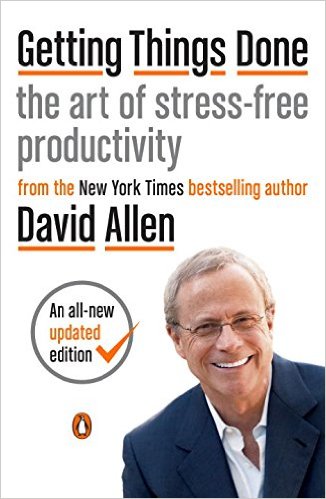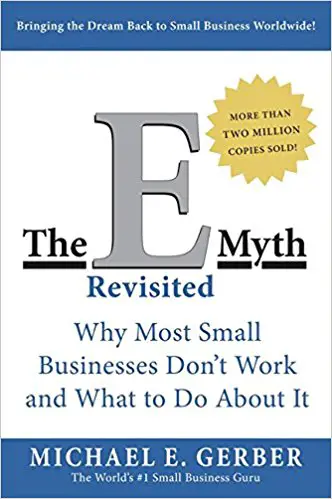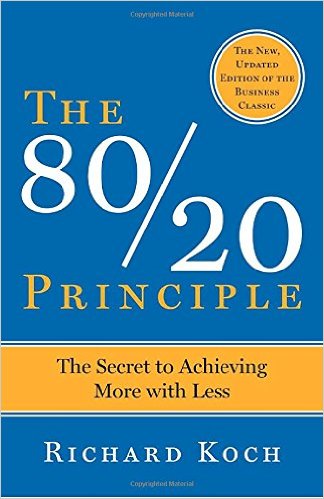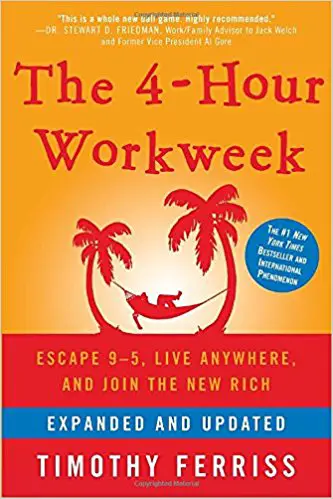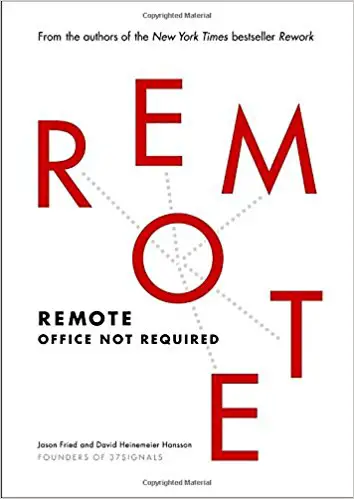Home — Collections — Best Productivity Books That Will Definitely Help With Yours
Best Productivity Books That Will Definitely Help With Yours
Table of Contents
“Did the days get shorter? They’re still 24 hours long, right?”
“Is it just me or is time flying faster than before?”
It’s not you, it’s the exhausting fast-paced modern life. We’re all infected with busyness and flooded with information from every possible direction, so it’s normal to feel overwhelmed. Our brains just aren’t used to processing so much.
This is especially true if you’re an entrepreneur in the first stages of a business. As a Jack of all trades, you’re all over the place, trying to accomplish everything in the shortest time possible. And all those success stories of how others made it? Yeah, not really helping. On the contrary, it’s frustrating to read them – especially when you’re struggling to keep your head above water.
If you’re looking for ways to manage your time more efficiently and regain control over your professional life, here arethe best productvity books to start with. Don’t expect them to be a magic wand that will do the work for you, but they will help you set some healthy systems in place.
By the way, if you read any other books that helped you with this matter and aren’t on this list but feel like they should be, please let us know. We’d also like to hear details about how you applied those lessons! So, if you’re willing to share, you know where to find us.
Getting Things Done: The Art of Stress-Free Productivity
This is probably the most known and recommended business productivity book from the past couple of decades. I’m usually skeptical and try to stay away from books that have so much hype built around them, but I did read this one and understood why it’s so popular. There’s a simple reason for that: it works. The methodology presented in “Getting Things Done” is easy to follow and efficient. As long as you follow the steps, of course.
It was published in 2001 and updated in 2015 by David Allen, one of the most known experts on organizational and personal productivity. Based on thirty years of experience and research as a coach to corporate managers and CEOs, it wasn’t written especially with entrepreneurs in mind, but it will help you set up a solid base. It’s also filled with detailed, practical guidance, so it’s not just hard-to-apply, generalist type of advice.
Tony Hsieh, CEO of Zappos, considers it essential reading and recommended this book to his employees. He also has something in common with the author: in 2011, David Allen implemented holacracy in his organization, the same self-management system adopted by Zappos.
The E-Myth Revisited: Why Most Small Businesses Don’t Work and What to Do About It – Michael E. Gerber
Michael Gerber‘s “E-Myth” will help you distinguish between being a self employed and a business owner. The main difference between the two is this: when you’re self employed and working in your business, your income depends on you doing the job. When you’re the business owner and working on your business, you’re setting systems in place that will help you run the business in a predictable and productive way.
First written in 1986, the author will walk you through all stages of running a business, from entrepreneurial infancy to maturity, and show you how to apply lessons of franchising (even if you don’t have a franchise).
It’s more inspirational than practical, so don’t expect lots of concrete advice for your problems, but the principles listed in it are timeless.
This was one of the books that helped Tim Ferriss ask himself some questions that dramatically changed his life.
The 80/20 Principle: The Secret to Achieving More with Less – Richard Koch
I’m sure you’ve all heard of Pareto’s principle, also known as the 80/20 law.
The basic idea is that 80% (or more) of your desired outcomes are the results of 20% (or less) of your efforts. It’s based on observations made more than a hundred years ago, when Vilfredo Pareto, an Italian economist, noticed that 20% of the peapods in his garden contained 80% of the peas.
Richard Koch went on to demonstrate that Pareto’s principle is also common in business management and life. His book shows you how to use that principle in your favor, to improve your effectiveness and profitability. More quality, not quantity!
This one’s another book recommendation from Tim Ferriss – it helped him manage his business differently and inspired the methodology he later described in “The 4-Hour Workweek“.
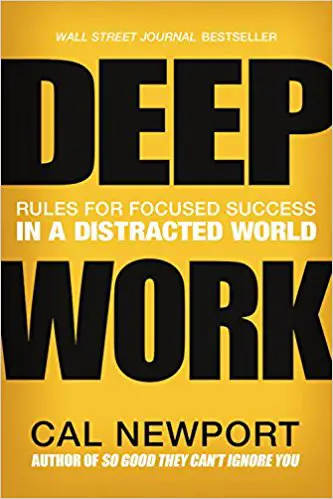
Deep Work – Cal Newport
Modern open space office? Checking your email constantly, even at night or during weekends? Always available on Facebook, Slack, WhatsApp or whatever instant messaging service you are using? While all these may seem harmless, the effect they have over our ability to focus and the quality of our work is devastating.
Cal Newport‘s book is probably one of the best productivity books for modern day workers. It will radically change your priorities and the way you work. It starts with all the modern workplace distractions, showing how and why they affect us, and then goes on to how we can tackle them. Lots of actionable tips, not just general blabla.
Throughout the book you’ll also get to read real life stories about successful people’s working habits, such as Einstein, Carl Jung, Charles Darwin, but also contemporary names, such as Walter Isaacson (probably one of the best biographers).
This book was recommended by Ryan Holiday, who listed it in his newsletter as one of the best books he read in 2016. Ryan said that: “[…] it’s his new book that’s probably had the biggest and most immediate impact on me. For those of you who enjoyed Tyler Cowen’s Average is Over, you already know how important the ability to focus, be creative, and think at a high level is going to be in the future. This is a book that explains how to cultivate and protect that skill–the ability to do deep work. One thing I’ve already started doing since reading this book is recording the number of hours of deep work I do each day in my morning journal. It’s a way of keeping a running tally and monitoring if I begin to get distracted or slow my pace.”
Others who recommend it: Seth Godin, Derek Sivers, Adam Grant, Daniel Pink.
The 4-Hour Workweek – Tim Ferriss
And since I mentioned Tim Ferriss before, how can I write about productivity books and leave out “The 4-Hour Workweek“? I don’t remember exactly who recommended this book to me, but, because of its extremely scammy title, I almost ignored it. Boy, am I glad I didn’t.
It was first published in 2007, after being rejected by 30 publishers or so – I imagine they weren’t very pleased with themselves afterward when the book turned out to be a bestseller.
Because of this book, “lifestyle design” term became popular – a principle stating that you don’t want to make a million dollars that you’ll spend when you are old and sick and can’t really enjoy them. What you really want is the lifestyle that you hope having that amount of money will bring you. The freedom to travel and work from anywhere, whenever you feel like, while also having plenty of time for your hobbies.
Tim Ferriss will show you how you can gain that kind of flexibility. It’s not a book about getting rich overnight and never having to work again, but about how to become more productive and efficient, how to automate processes in order to gain that kind of flexibility.
He’ll walk you through lots of practical advice, from email management to batch processing, how to do A/B tests and so on. All these will help you work smarter instead of more, and enjoying your life in the meantime.
Of course, not everything in this book can be applied in all cases, but most of the principles explained in it are eye-opening.
Lots of entrepreneurs, writers and CEOs recommend it, such as James Altucher, Michael Gerber, Tim Draper, Bryan Callen and so on.
Remote – Jason Fried & David Heinemeier Hansson
Moving on to books with even more concrete advice… “Remote: Office Not Required” was recommended by Richard Branson.
Written by two entrepreneurs, it will convince you to let part (or even all) of your team to function remotely – from home or anywhere else. They’ll guide you through all the steps needed for the setup, all possible challenges, but also the benefits that you’ll gain from this.
It was written by Jason Fried and David Heinmeier Hansson, founders of Basecamp (formerly known as 37signals). David Heinmeier Hansson is also the creator of Ruby on Rails, one of world’s most popular programming frameworks (Twitter and Shopify were built using it).
Besides that, I also recommend that you also follow the articles they publish on Signals v. Noise – lots of great advice for entrepreneurs there.
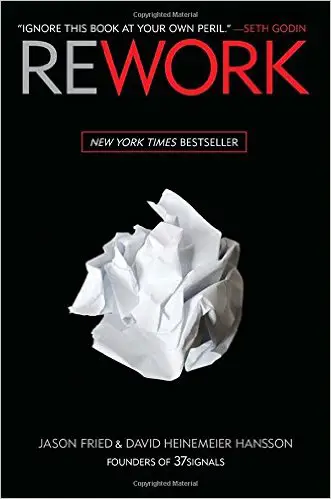
ReWork – Jason Fried & David Heinemeier Hansson
Yes, another book from Jason Fried and David Heinemeier Hansson. “ReWork: Change the Way You Work Forever” will show you how to succeed better, faster and easier in business. And it has an entire section dedicated to learning how to be more productive.
It’s very inspiring and filled with practical ideas. No bullshit, no sugar coating, just straightforward advice. And you’ll also read it extremely fast – they edited it and cut out everything that was unnecessary until there was only highly concentrated information left.
Seth Godin, Mark Cuban and Chris Anderson are among the folks who recommend it.
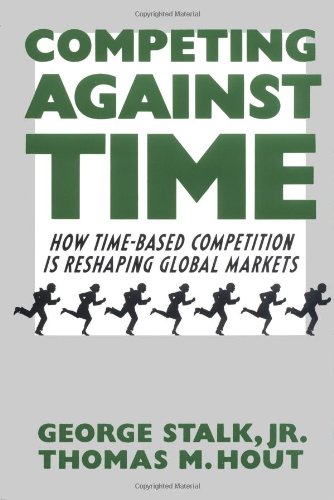
Competing Against Time – George Stalk Jr. & Thomas M. Hout
I’ll let the following CEOs speak for this book:
- Tim Cook recommends it to every new hire.
- John Sculley, former CEO of Apple and Pepsi, said that it’s “a provocative and well-researched book with some insightful ideas for competing in the 1990s.”
- Frederick W. Smith, FedX Founder and CEO, lists it as “one of the few profound business books”.
- Donald Petersen, CEO of Ford, mentions this book as “essential reading for businessmen who want to set, rather than follow, the pace in their industries”.
It’s filled with lessons on how to use time to your advantage and turn your company into a more productive one. While the examples exposed in it are old, the principles behind them are timeless.
